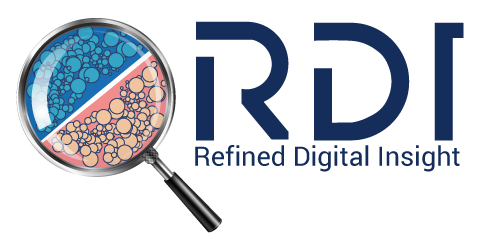Data Intelligence Dispatch
In the dynamic world of data, the past month has seen significant strides in how organizations are leveraging data lineage, data catalogs, and data intelligence to enhance trust, accelerate AI initiatives, and drive business value. This edition highlights key developments and actionable insights to help you navigate the evolving data landscape with confidence. Recent research from McKinsey & Company highlights a critical challenge for businesses: the "missing data link" that prevents organizations from scaling their data products. It’s not about having more data; it's about generating more value from the data you already have. They point to the "flywheel effect" of accelerating value capture and reducing costs with each new business case, but this requires a foundational shift in how data is managed.
In July’s edition of the Data Intelligence Dispatch, a clear theme emerges: responsible AI innovation is only possible when grounded in strong data governance, cataloging, and lineage systems. Collibra’s acquisition of Raito marks a major leap forward, unifying data and AI governance through a single platform that enhances traceability, access control, and model oversight. Across the public and private sectors, organizations are recognizing that trustworthy AI outcomes require high-quality, well-governed data—making metadata management, lineage automation, and AI-enhanced catalogs mission-critical. Key insights this month emphasize how data lineage boosts business confidence, how AI is reshaping both BI and governance workflows, and why global privacy regulations are raising the bar for compliance. Together, these developments position data intelligence not just as an enabler of AI, but as the foundation of enterprise innovation, risk mitigation, and strategic advantage.
The June 2025 edition of Data Intelligence Dispatch highlights the growing urgency for unified data governance as organizations accelerate their adoption of AI technologies. A central theme across the insights is the convergence of data lineage, cataloging, and AI governance as foundational pillars for trusted, scalable, and compliant AI systems. Collibra’s emphasis on “The Power of One” reflects a broader industry movement toward integrated platforms that manage both data and AI assets holistically. Articles throughout the edition stress that AI governance must evolve from existing data practices, not diverge from them, with metadata management, data quality, and lineage all playing critical roles in transparency, risk reduction, and decision-making confidence. In parallel, the rise of AI-powered data catalogs and the resurgence of lineage-driven intelligence signal that automation and traceability are no longer optional—they are strategic imperatives. As regulatory environments tighten and AI transforms enterprise workloads, robust data governance is the linchpin enabling responsible innovation and long-term competitive advantage.
The Importance of Data Intelligence Processing and Analytical Reporting In todays digital-first world, data isnt just an asset; its the lifeblood of modern organizations.From strategic decision-making to uncovering hidden opportunities, the ability to process data intelligently and transform it into actionable insight.
In todays data-driven world, technology is no longer just a support function—it’s a core driver of business success. Organizations generate vast amounts of data daily, but the ability to transform that data into actionable intelligence depends on the right technology infrastructure and strategic planning.
In an era defined by rapid digital transformation, businesses are awash with data. Every click, transaction, and interaction generates valuable information, yet many organizations struggle to transform this raw data into meaningful insights. Data, without structure or purpose, is just noise.






